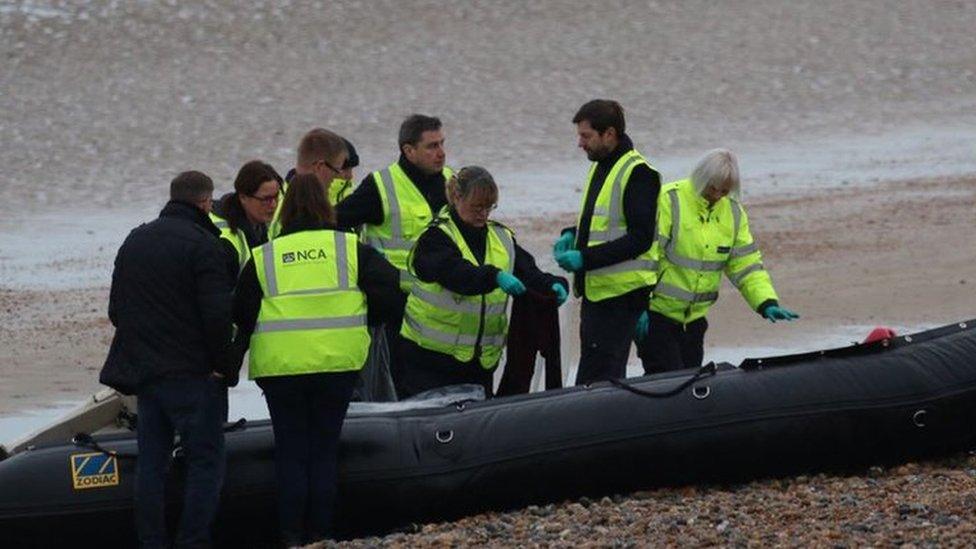Bahamas: 28 Haitian migrants drown in illegal crossing
- Published
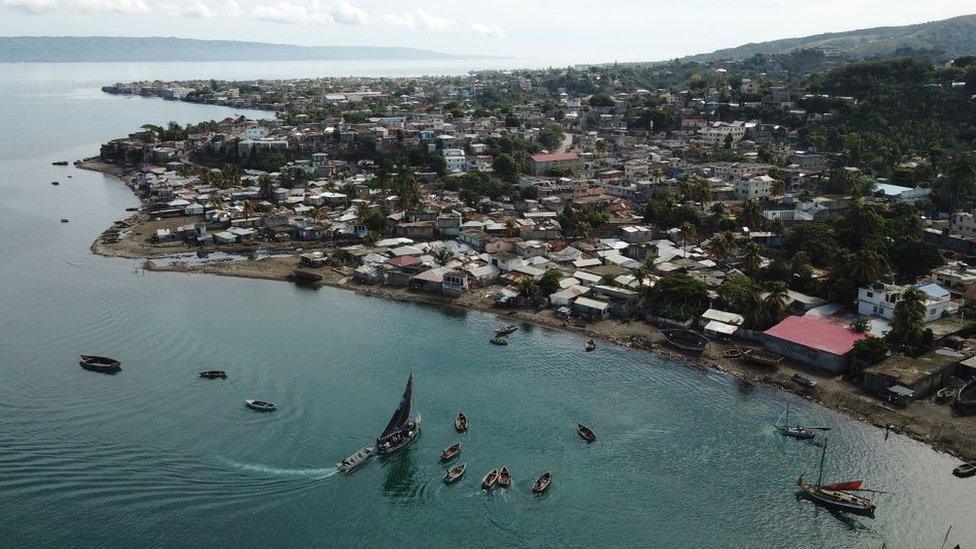
Haiti is the poorest economy in the Caribbean
The bodies of 28 drowned Haitian migrants have been recovered off the coast of the Bahamas, officials say.
It comes after operations over the weekend by the Royal Bahamas Defence Force (RBDF) rescued 17 survivors.
A boat that had been transporting the migrants sank six miles (9.7km) off the coast of Marsh Harbour in the Abaco Islands, to the north of the country.
Haiti is the poorest country in the Caribbean and 60% of the population live on less than $2 (£1.53) a day.
Illegal attempts by Haitians to get to the Bahamas or nearby Turks and Caicos are common.
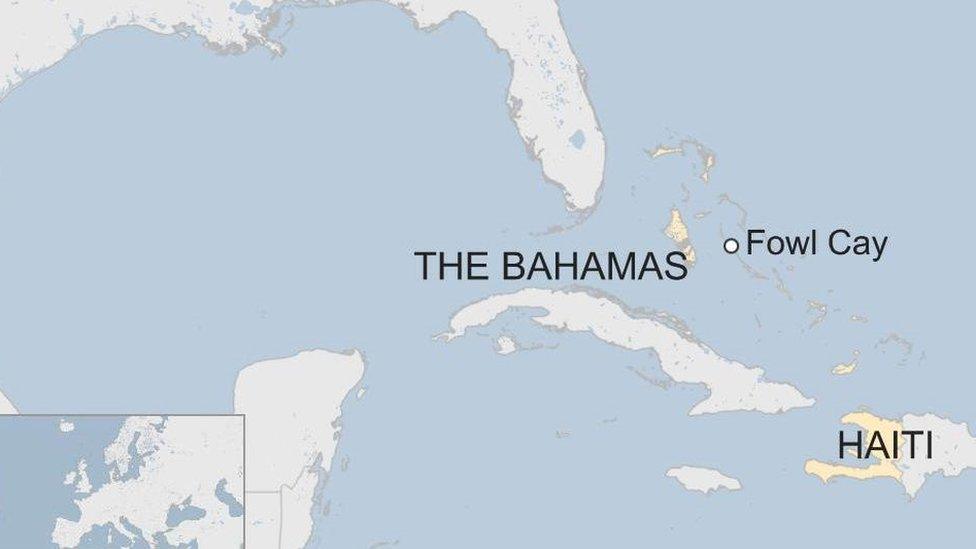
On the island of Fowl Cay, the nearest island to where the boat sank, villas at a luxury resort cost up to $4,328 a night.
In a tweet, the US embassy in Haiti warned Haitians of the threat that smuggling operations posed.
Allow X content?
This article contains content provided by X. We ask for your permission before anything is loaded, as they may be using cookies and other technologies. You may want to read X’s cookie policy, external and privacy policy, external before accepting. To view this content choose ‘accept and continue’.
Since the beginning of 2019, 300 Haitians have been caught trying to illegally enter the Bahamas.
The RBDF says that about six boats carrying 80-90 migrants often arrive at one time.
The migrants are usually intercepted at sea and transferred to the immigration department, from where they are often deported back to Haiti.
Since the devastating 2010 earthquake, external, 60,000 Haitian migrants have been granted temporary residency in the United States.
President Trump announced he was ending the programmer in 2017, but this has been repeatedly challenged in court.
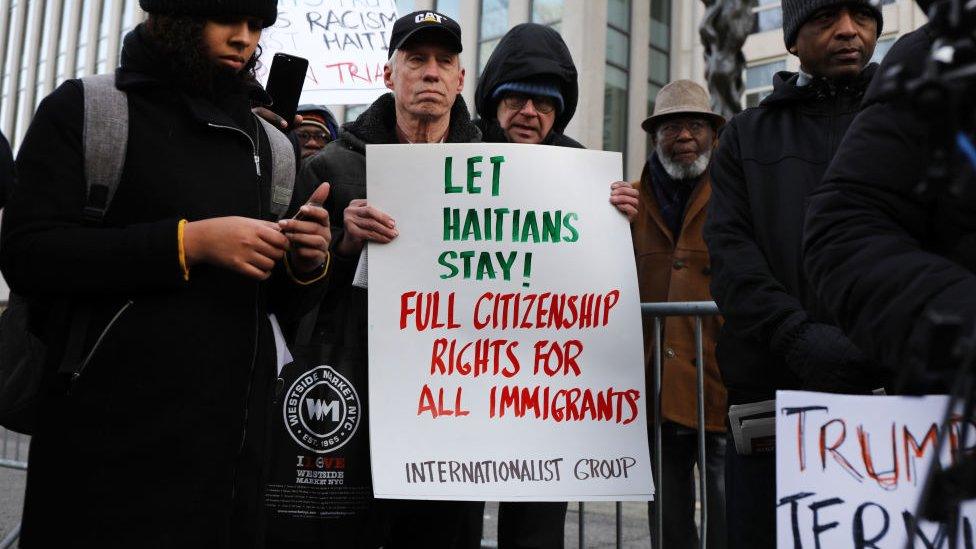
Protests against Trump's decision to evict Haitians from the US
- Published7 October 2018
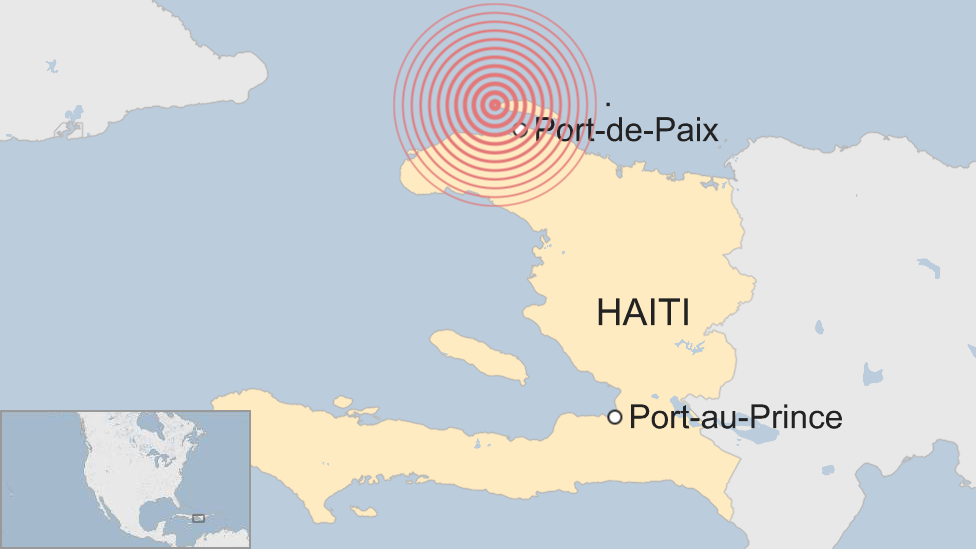
- Published8 October 2018
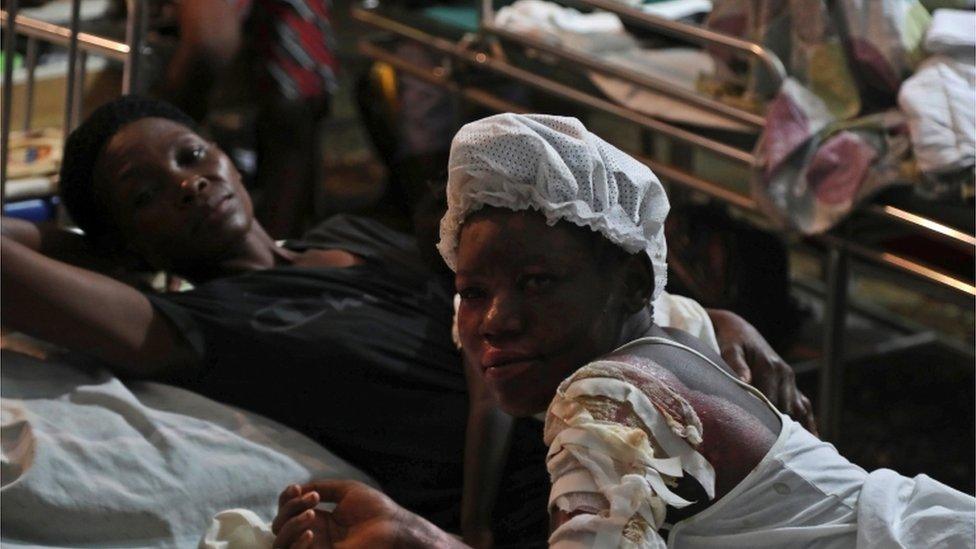
- Published3 January 2019
